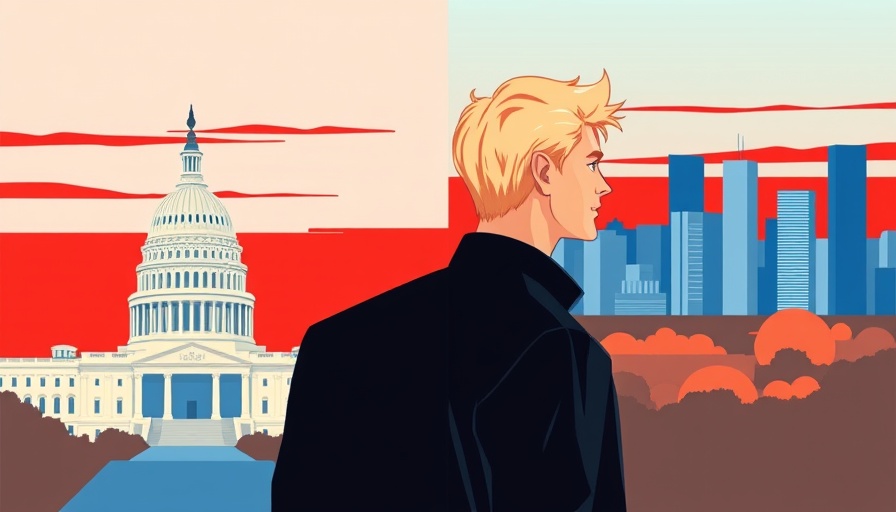
A New Chapter for Two Ambitious Innovators
In the heart of San Francisco, two young software engineers, Zsombor “Anthony” Jancso and Jordan Wick, launched a bold initiative aimed at revitalizing city government through technology. Their journey began with Accelerate SF, a hackathon intended to bring tech talent into civic service, but it took an unexpected turn when they shifted gears to work at the federal Department of Government Efficiency (DOGE), under the controversial guidance of Elon Musk.
The Initial Vision of Accelerate SF
The vision behind Accelerate SF was to uplift local government capabilities by harnessing the skills of the tech sector. Jancso, with roots in Hungary and a track record of high-profile coding achievements, and Wick, an MIT graduate with experience at leading companies like Waymo and Flexport, were seen as hopeful beacons for a new, cooperative approach to solving pressing urban issues such as homelessness and public space decay. However, the environment they sought to engage with was riddled with bureaucratic hurdles, and after a promising start, they found themselves disillusioned.
The Unexpected Drift to DOGE
Transitioning to DOGE offered the duo a newfound platform to implement their tech-driven ideals, albeit with a radically different approach. In their new roles, they are now leveraging AI to create systems that could potentially replace many federal jobs. This shift has sparked a split among previous colleagues and supporters who initially believed in their mission to strengthen community ties through tech innovation.
Mixed Reactions from the Tech Community
The reaction to Wick and Jancso’s pivot is overwhelmingly mixed. While some former associates support DOGE’s ambitious restructuring of government processes, others express concern over the means employed to achieve these goals. Former collaborators and civic entrepreneurs, like Peter Hirshberg, worry that what began as an initiative to empower local government is veering into a territory that might undermine it.
The Story of Two Paths: Light vs. Dark
Hirshberg emphasizes the duality in the paths chosen by Jancso and Wick, likening it to the classic narrative of good versus evil. By drawing parallels between their initial vision for San Francisco and their ongoing endeavors at DOGE, he frames their journey as a cautionary tale about the choices we make in pursuit of innovation. “You can come from the same genes and choose the dark side or the light side,” he reflects.
Balancing Innovation with Responsibility
As technology permeates deeper into our lives, the challenge remains: how does society strike a balance between harnessing innovation and ensuring that these advancements contribute positively to communal welfare? The ambitious plans at DOGE are igniting debates across the tech landscape about the ethical implications of replacing human workers with artificial intelligence systems. Should there be limits on how far technology can and should go in transforming government structures?
The Broader Implications for San Francisco
The future of San Francisco's civic technology initiatives remains uncertain. With entrepreneurs like Jancso and Wick at the helm of federal efficiency efforts, could there be potential for transformative change that aligns with community needs, or is the city witnessing a departure from collaborative governance? The outcomes of DOGE’s initiatives could affect how local leaders engage with their constituents for years to come.
Future Directions: What Lies Ahead for Civic Engagement?
As communities grapple with issues amplified by the pandemic and economic uncertainty, fostering civic engagement through technology may be more critical than ever. It calls for a look beyond individual agendas and an honest conversation about the roles tech innovators play in shaping the future of our cities. While hopes for Accelerate SF may seem diminished, the need for a collective movement towards smarter, more efficient government remains a pressing concern.
As more tech professionals enter the civic arena, driven by innovation and the desire to make a meaningful impact, the dialogue around the ethical implications of their actions will be fundamental. A united effort is essential to ensure that technology serves the public good, rather than undermining it.
In a world where technology is shaping governance like never before, we must remain vigilant in how we channel those efforts. Harnessing the idealism of young innovators could lead to a brighter future, rooted in collaboration and purpose.
Call to Action: What Can You Do?
If you care about the future of our cities and communities, consider engaging in local conversations about tech initiatives. Attend community forums, advocate for responsible tech practices, and support local leaders who foster inclusivity and accountability. Your voice can influence how technology supports civic engagement and transformation.
 Add Row
Add Row  Add
Add 




 Add Row
Add Row  Add
Add 

Write A Comment